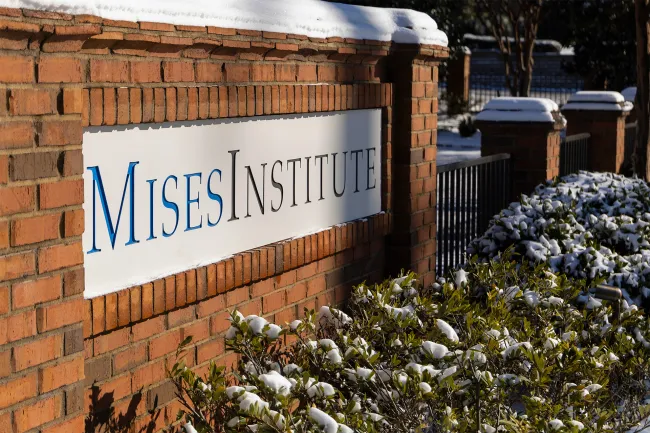

The Split over Epstein Tells Us Something Important about the MAGA Movement

My 46 Years of Contempt of Congress

Why Government Lands Burn

Bolivia Held Hostage: The Tyrant’s Return

Price Inflation Rose in June to a Five Month High—But Don’t Blame Tariffs

Why Hayek Rejected “Mere Legality”

Trump Is Wrong about Interest Rates
Let's look at some of the reasons why President Trump and his supporters are so obsessed with demanding that the Federal Reserve force down interest rates even further.

A Comprehensive Case for Ending the Fed
Bob dismantles the arguments supporting the Federal Reserve and presents a clear strategy for its abolition and replacement.

Who Invented Money?
The origination of money is a ground shaking, mind altering realization of how the world works.

More War and No Epstein Files: MAGA’s Rough Few Weeks
The P&M group discusses Trump’s reversals, capitulations, and outright failures to fulfill popular campaign promises, and what Trump supporters should take away from all this.
Virtual Mises University is the online counterpart to the Mises University conference and can be attended by anyone.
Mises University is the world's leading instructional program in the Austrian School of economics.
Join us for Supporters Summit 2025 in Delray Beach, Florida, to discuss "Making America Free Again."
This fall, students from across the US are participating in Mises Book Clubs led by scholars at various universities and colleges. These student groups promote deep reading in Austrian economics.












